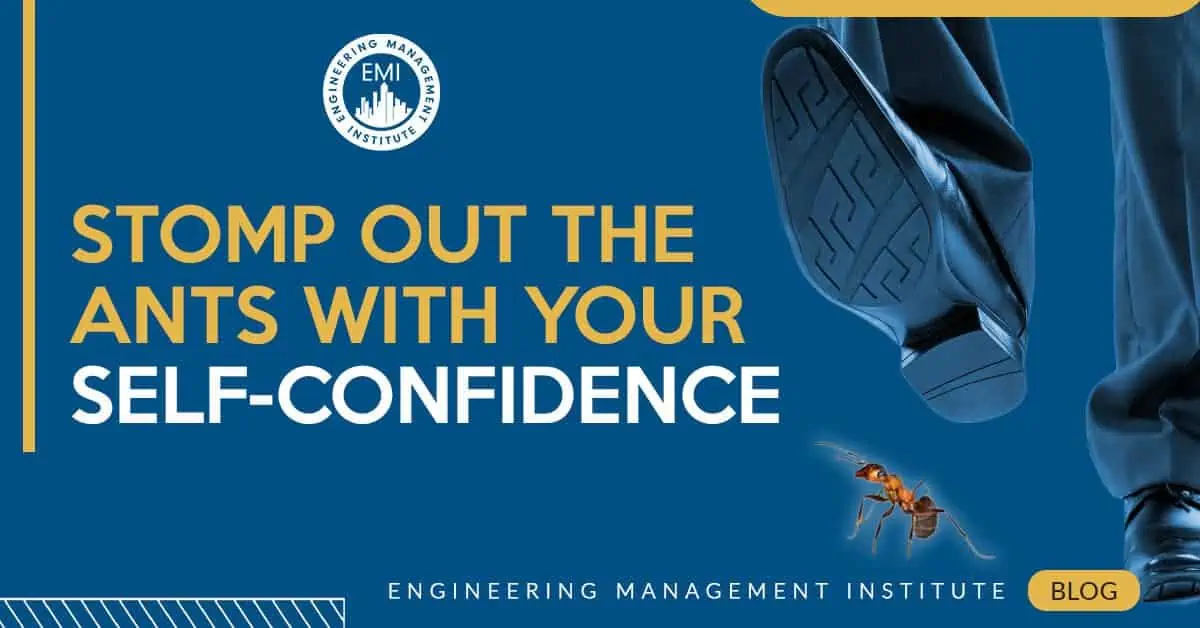
Building self-confidence, in my opinion, is like a tug of war in your head. One part of you is saying, “I can do this,” while the other part of you is saying, “No you can’t. You’re a disaster.” “Don’t believe everything you hear — even in your own head.” That advice comes from Dr. Daniel Amen, who coined the term ANTs—Automatic Negative Thoughts. Just like real ants that ruin your picnic, ANTs can ruin your day.  Your goal is to stomp out those ANTs. Kill those negative thoughts. Don’t listen to them when they pop into your brain. Remember, you are in charge, not the ANTs. Dr. Amen has some suggestions on how to do that here.
Your goal is to stomp out those ANTs. Kill those negative thoughts. Don’t listen to them when they pop into your brain. Remember, you are in charge, not the ANTs. Dr. Amen has some suggestions on how to do that here.
Self-confidence comes from how you project yourself to the world. Do you stand up straight, look people in the eye, reach out to shake someone’s hand when we’re allowed to do that again? Or do you hang back, only speak up when others have expressed their opinions, and look at your shoes? A few years ago, I was coerced into attending a high school reunion. I hadn’t been back to that town since my family moved the day after graduation. I knew I wouldn’t recognize many people, so I was hanging back, not really mingling. Maryann came up to say hello. She was as beautiful as ever. She had been the homecoming queen, head majorette, beauty pageant winner — and she was smart. I remembered her as being congenial and friendly, always on top of her game. She told me she always looked up to me because I had such self-confidence, something she had always lacked. She said she always wanted to be more like me. I was stunned. She saw me differently than I saw myself and vice versa.
I recently got to interview Anthony Fasano, founder of the Engineering Management Institute. He has a great story on the website about how he developed as an engineer. It undoubtedly required self-confidence. “I had a goal of becoming a high-level executive in my engineering organization. When observing the leaders in my company, it was obvious that they possessed skills in addition to their technical skills, namely great people management, or ‘soft,’ skills,” Fasano said. “So, I set out to develop my ‘soft skills,’ a move that not only rapidly advanced my career, but led to me becoming an internal coach and trainer for my company, and ultimately inspired me to leave my engineering career behind to spend more time helping engineers become more effective managers and leaders.” That’s what self-confidence can do for you. Trust yourself and go for your dreams.
Like this article? Check out more articles on our News page. Want to assess your leadership skills? Check out our Resources page for a variety of quizzes.